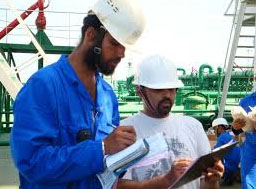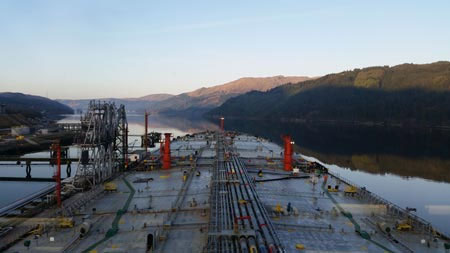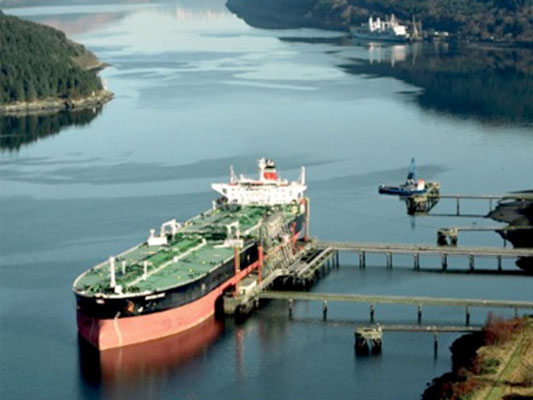
We have a wide database of crew for all kinds of vessels

We can supply you competent seafarers for your Fleet vessels
VETTING & FLEET COMPLIANCE
Several of the world’s largest shipping lines call upon the services of “Al Khair Shipping Management” (AKSM) Surveys to provide specialist advice and audits to promote safety, operational efficiency and protection of their assets.
Our approach is to develop a customised service with the client that encompasses their specific needs for a certain type of vessel or operation on the basis of the outcomes of a risk assessment. We use the experience of our work in damage and incident investigations in order to allow clients to focus on those items which present the highest risk of failure.

Example 1
One of the major risks for ultra large container vessels is that of grounding, especially in tidal water.
In order to mitigate this risk from occurring, the audit should focus on for instance the question as to whether the company has a requirement for the minimum under keel clearance (UKC) AND if the vessels operating for that company can provide a record of compliance with that requirement.
Example 2
One of major risks for a specialised reefer vessel is the failure of the auxiliary engines, causing the refrigeration system on board to under-perform.
In order to mitigate this risk from occurring, the audit may have to include a review of the company's requirements on maintenance and electrical capacity of the generators and auxiliary engines AND the compliance may be checked by performing load tests.
Example 3
The client has encountered problems with large tankers mooring at a river-jetty with strong currents.
In order to reduce the risk of incident recurrence, mooring analyses may have to be conducted to provide an advice on mooring requirements. On board audits may subsequently be carried out during the mooring operations in order to ensure the required mooring arrangement is complied with, followed by a process of monitoring the moorings during the vessel’s stay at the jetty.



• Risk assessments
• Writing specific audit programmes
• Review of procedures
• Ship vetting services from desktop analyses to on board inspection
• On board audits (global service)
• Data collection and trend analyses
• Overall safety
• Conduct of the inspection
• The SIRE report editor – The inspector’s reporting tool
• Inspector observations
• Other comments, additional comments
• The new officer qualification matrix
• Getting ready and staying ready for inspection
Analysis of parts I and II of an oil record book. How to review the excerpts and record where the entries may reveal problems or irregularities.
• First impressions
• The opening meeting
• Important certificates and documentation
o ESP documentation
o Officers’ licences
• Hours of rest records
• Wheelhouse and navigation
• Communications
• The operating principles of SIRE
• How reports are accessed by recipients
• What the delivered reports look like
• Using the VIQs for SIRE self-inspections
• Reporting defects and corrective actions – The defect management system
